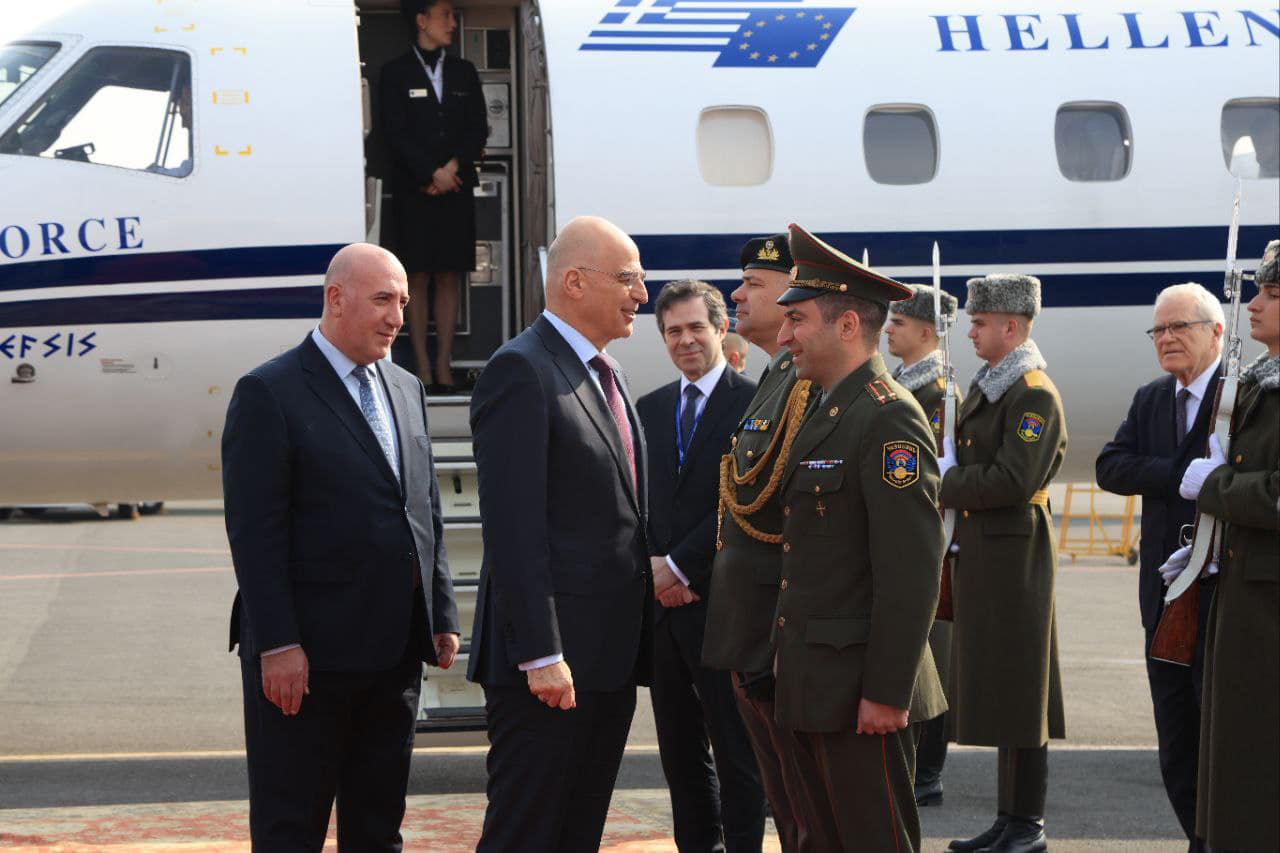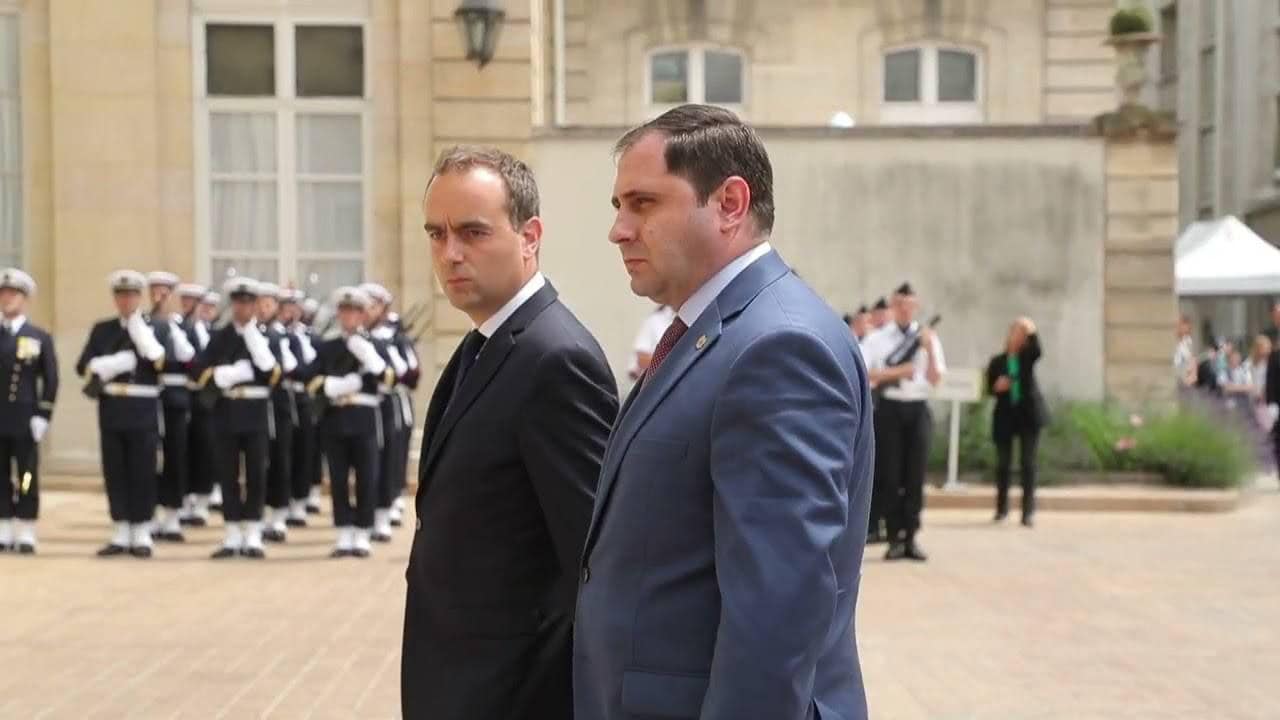"Yerevan сould gain more": On military contracts with France
Armenia-France military contracts
Yerevan and Paris expand military-technical cooperation. On June 17, Armenian Defense Minister Suren Papikyan and French Armed Forces Minister Sébastien Lecornu reached new agreements. The French minister announced on his X page that Armenia will receive deliveries of Caesar howitzers.
According to political analyst Robert Ghevondyan, this marks an ‘intermediate stage’ in Armenian-French cooperation, with expectations for Armenia to acquire significantly more military equipment not only from France but also from other Western countries over time. Ghevondyan believes it is in the collective West’s interest to reduce Russia’s influence in the South Caucasus, which is currently beneficial for Armenia.
“In the context of Russia’s hegemony in the region, Armenia has suffered significant losses in recent years. Yerevan aligns with the Western agenda because it enables the realization and advancement of most of its interests,” Gevondyan told JAMnews.
Armenia and France signed a military cooperation agreement in October 2023. The parties agreed on supplying Armenia with ‘weapons to protect civilian populations and ensure the defense of its borders.’ France committed to providing GM 200 radar stations and Mistral short-range missiles.
In November, discussions were held in Azerbaijan regarding France’s shipment of a large number of multi-purpose Bastion armored vehicles to Armenia via Georgia. Tbilisi confirmed sending a ‘special shipment’ to Armenia.
In February 2024, the French Armed Forces Minister stated in Yerevan that the first batch of defense equipment had already been delivered to Armenia. Le Figaro reported that this included three radars capable of detecting aircraft up to 250 km away and night vision binoculars. Lecornu emphasized that if necessary, Armenia would also receive anti-aircraft missiles.
- “Armenia needs to sign a trilateral agreement with France and India.” Opinion
- France to provide military equipment to Armenia. Unexpected statement in Yerevan
On the visit of Papikyan to Paris
On the morning of June 17, a delegation led by Armenian defense minister Suren Papikyan departed for France on a working visit. It was reported that the minister participated in the opening ceremony of the international exhibition EUROSATORY and met with representatives of several defense industry companies.
According to the Armenian Ministry of Defense, during the bilateral meeting between Papikyan and Lecornu:
- Issues of defense cooperation between Armenia and France were discussed.
- Papikyan presented to his counterpart the reforms in the defense sector, including transformations being implemented in collaboration with France.
“The parties emphasized the importance of military-technical cooperation, resulting in new agreements,” the statement said.
Later, it became known that an agreement on military-technical cooperation was signed between the Ministry of Defense of Armenia and the French defense industry company KNDS. The Armenian ministry did not disclose the details of the agreement.
Lecornu provides details
Following his meeting with his Armenian counterpart, French Armed Forces minister Lecornu posted on his X page, stating that they had engaged in a “warm and effective dialogue.” Lecornu announced that a contract had been signed for the purchase of French Caesar howitzers. He considered this to be “a significant event.”
The Caesar howitzers are actively used in the conflict in Ukraine. These self-propelled artillery systems are equipped with a 155-millimeter gun. When using modern shells, the range of effectiveness exceeds 50 kilometers.
Commentary
Armenia is reaping the rewards of its recent policies, notes political analyst Robert Ghevondyan. He cites examples such as deepening military-technical cooperation with France and expanding relations with the United States to the level of strategic partnership. According to him, these are interconnected processes.
“Armenia has effectively withdrawn from the CSTO [a military bloc under Russia’s auspices]. It remains in the organization only de jure. In the West, this status is seen as a basis for expanding military-technical cooperation. Certainly, when Armenia formalizes its exit from the structure, even broader opportunities for cooperation will open up,” he believes.
Gevondyan states that Yerevan is diversifying its security system and foreign policy. France shows the greatest interest in this issue, driven by its own interests. Specifically, Paris seeks to “strengthen its position and role” in the evolving dynamics of the South Caucasus:
“The weakening of Russia’s influence and the elimination of Russian hegemony in the region imply the emergence of a vacuum. France is trying to fill it. Armenia is the point in the region where France’s opportunities are maximal.”
The analyst emphasizes that France does not seek to “occupy Armenia from within,” as Russia has done in the past.
He reminds that Russia still holds monopolistic rights in energy and many other sectors. Gevondyan is convinced that deepening defense cooperation with France does not imply dependence on Paris, as it did with Moscow.
Regarding the question of providing Armenia solely with defensive weapons, he noted that “the distinction between defensive and offensive weapons is small.”
According to the analyst, there are defensive weapons that are “successfully used” even during offensive operations:
“When Azerbaijan’s stance towards Western platforms turned destructive, the emphasis on supplying purely defensive military equipment to Armenia became less pronounced in the West. Especially in France, whose parliament called for the supply of offensive weaponry to Armenia.”
Asked about the potential reactions from neighboring countries, given that Azerbaijan previously accused Paris of militarizing the region after the delivery of French multi-purpose armored vehicles, and Turkey viewed it as provocation, Gevondyan responded:
“The deepening of Armenian-French cooperation may escalate the rhetoric from Baku, Ankara, and Moscow, but not beyond that. There will be calls, accusations, and threats, but nothing substantial will follow.”




















